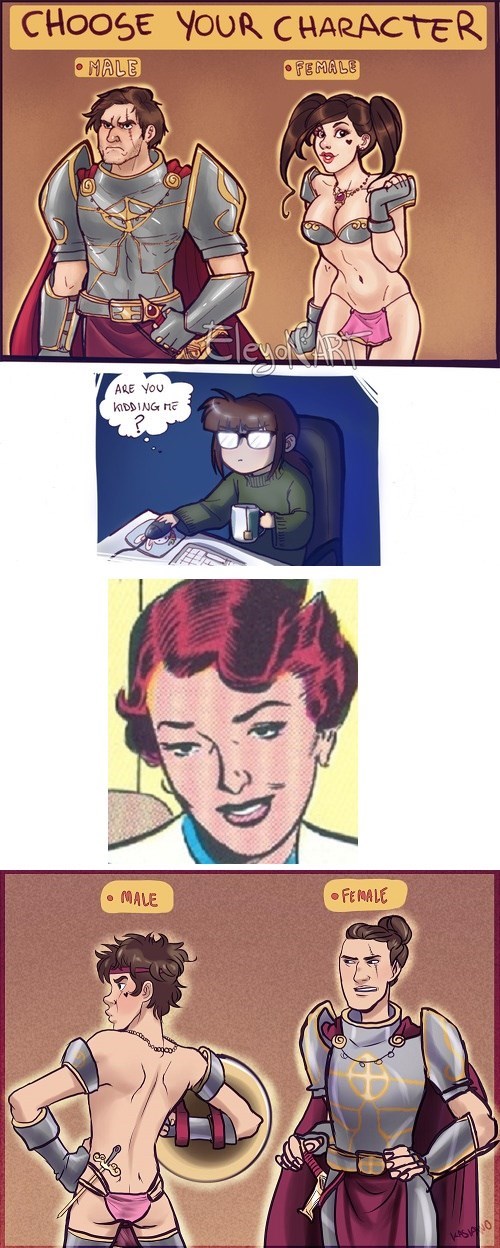
In the “Gamers Should Be Able to Choose Any Type of Character They Want” meme the female player is angry and upset that when choosing a female character, the character has to look cute, show cleavage, and wear very revealing clothing/armor. However, her male counterpart gets to look tough and noble and powerful looking armor. The meme in the next panel uses a popular comic character showing her disgust and also the “I’m not having that face” and changes it so the female gamers can have their own version choices. Within the female gamers version of choices the gender roles are reversed and the male is character is wearing revealing clothing while the female character gets to wear armor and look muscular for battle.
In this meme the first rhetorical concept that can be seen used here is identification. Identification is defined as “a communicative process through which people are unified on the basis of common interests or characteristics.” (Palczewski, Ice, and Fritch 7). The artifact or meme used here gives the audience the idea that the person who created the meme understands what gender role looks like in games. The creator of the meme also used a female focal point because it shows that they have a common understanding of what they see as a problem in games. Another point about identification is that the creator of this meme chose a subject that is under heavy debate involving gender roles, feminism, and gaming. The creator is displaying to the audience that they understand and identify with the feminist issues of stereotyped gender roles in games and wanted to paint a clear picture of that issue for a wide audience. This point closely relates to another rhetorical concept called agency.
Agency is defined as “the capacity to act, that is, to have the competence to speak or write in a way that will be recognized or heeded by others in one’s community.” (9) Agency is a perfect rhetorical concept to understand in relationship with the meme presented, because the creator understands that they are speaking to an audience that is heavily centered on technology, the internet, and gaming. And since they are speaking to a gamer and internet cultured audience that they should use a type of medium that the community they were speaking to would understand. Also within agency the creator has control of the message (gamers should play as whoever they want.), but not how the message is perceived by the audience (how or what am I to do or feel about this message?).
The artifact or meme under the scope of the rhetorical concepts: agency and identification are a perfect example of the rhetoric of feminism and game design, because they display an important issue laid out for a targeted audience while also having control over what message is being displayed. This also allows the rhetoric of feminism and game design, specifically the meme, to gain footing within different communities.
